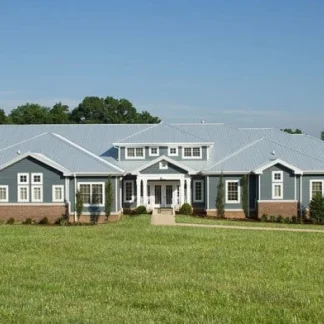The Ranch - Tennessee
Nunnelly, Tennessee, 6275 Pinewood Road, 37137
Available Programs
- Adult program : The Ranch treats men and women struggling with addiction, mental health disorders, eating disorders, trauma and sex and intimacy disorders
- Program for men : The Ranch's sex and intimacy disorder program for men and women is gender-separate
- Program for women : The Ranch's eating disorder is for women with anorexia, bulimia, binge-eating disorder and other unhealthy eating conditions
Insurance and Financial
- Private insurance
- Self-pay options
About this Facility
The Ranch–Tennessee is an integrative behavioral and mental health program in Nunnelly, Tennessee. They provide an array of specialized services for adults experiencing chemical dependency, sex and intimacy disorders, eating disorders, and related conditions. They offer medically supervised detox and intensive, integrative residential care in a scenic ranch setting.
The Ranch–Tennessee, in Nunnelly, is an integrative recovery center for adults specializing in the treatment of an array of addiction and mental health disorders, including substance dependency, eating disorders, and sex and intimacy disorders. They provide medically supervised detox and immersive inpatient care in a luxury rural setting. Their primary treatment modalities combine psychotherapeutic approaches with evidence based holistic care. Specialized services for families and couples are available.
The experienced clinicians at The Ranch–Tennessee offer round the clock medical supervision for clients withdrawing from drugs and alcohol. They are licensed to prescribe FDA approved medications to ease withdrawal symptoms and prevent potentially life threatening complications.
The Ranch–Tennessee prioritizes whole person and highly personalized care, offering a wide range of evidence based treatment options that combine traditional psychotherapy with holistic care. Their trauma informed individual, group, and family counseling programs draw from a variety of proven therapeutic approaches, including CBT, DBT, motivational interviewing, and EMDR. Complementary therapies include Native American healing practices, creative arts therapy, recreational and adventure therapy, equine therapy, and experiential therapy. They also emphasize recovery focused life skills training, including courses in coping, stress and anger management, problem solving, communication, self care, wellness, and relapse prevention.
The Ranch ensures clients receive a robust continuum of care to promote sustained recovery. This may include aftercare planning and transitional support for clients stepping down from immersive inpatient care, peer coaching, and alumni support based on the client’s individual needs.
The Ranch–Tennessee’s luxury treatment center is located in a private wilderness setting. The working ranch features premium accommodations, including an onsite gym, recreational facilities, a yoga studio, and meditation and music rooms. The riverside campus offers mountain views and scenic hiking trails.
The Ranch–Tennessee is Joint Commission accredited and LegitScript certified. They accept private insurance and self pay.
Contact us for more information: (888) 545-4735

Contact The Ranch - Tennessee
Connect with The Ranch - Tennessee by calling their admissions team directly.
(888) 545-4735 Website Get Directions